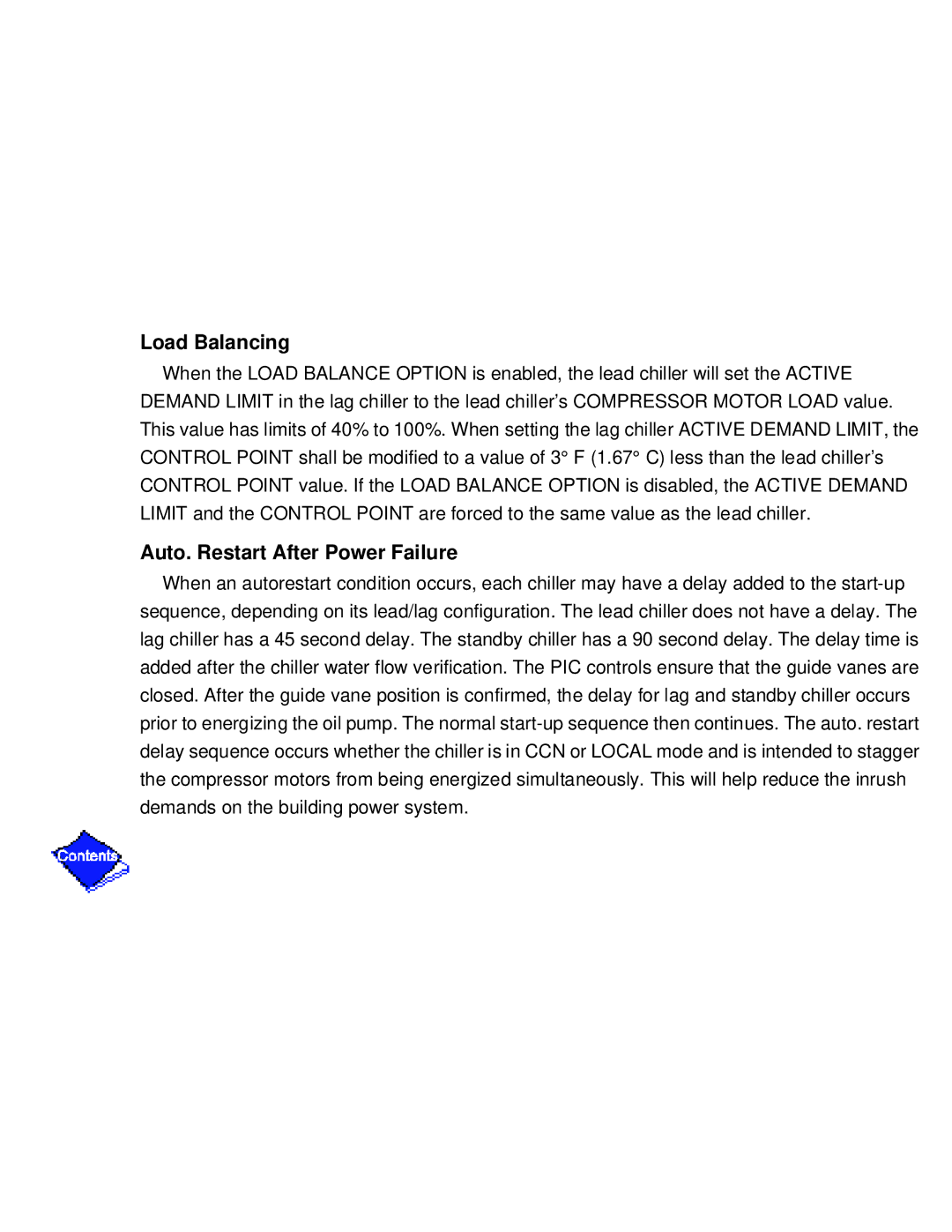Load Balancing
When the LOAD BALANCE OPTION is enabled, the lead chiller will set the ACTIVE DEMAND LIMIT in the lag chiller to the lead chiller’s COMPRESSOR MOTOR LOAD value. This value has limits of 40% to 100%. When setting the lag chiller ACTIVE DEMAND LIMIT, the CONTROL POINT shall be modified to a value of 3° F (1.67° C) less than the lead chiller’s CONTROL POINT value. If the LOAD BALANCE OPTION is disabled, the ACTIVE DEMAND LIMIT and the CONTROL POINT are forced to the same value as the lead chiller.
Auto. Restart After Power Failure
When an autorestart condition occurs, each chiller may have a delay added to the start-up sequence, depending on its lead/lag configuration. The lead chiller does not have a delay. The lag chiller has a 45 second delay. The standby chiller has a 90 second delay. The delay time is added after the chiller water flow verification. The PIC controls ensure that the guide vanes are closed. After the guide vane position is confirmed, the delay for lag and standby chiller occurs prior to energizing the oil pump. The normal start-up sequence then continues. The auto. restart delay sequence occurs whether the chiller is in CCN or LOCAL mode and is intended to stagger the compressor motors from being energized simultaneously. This will help reduce the inrush demands on the building power system.

